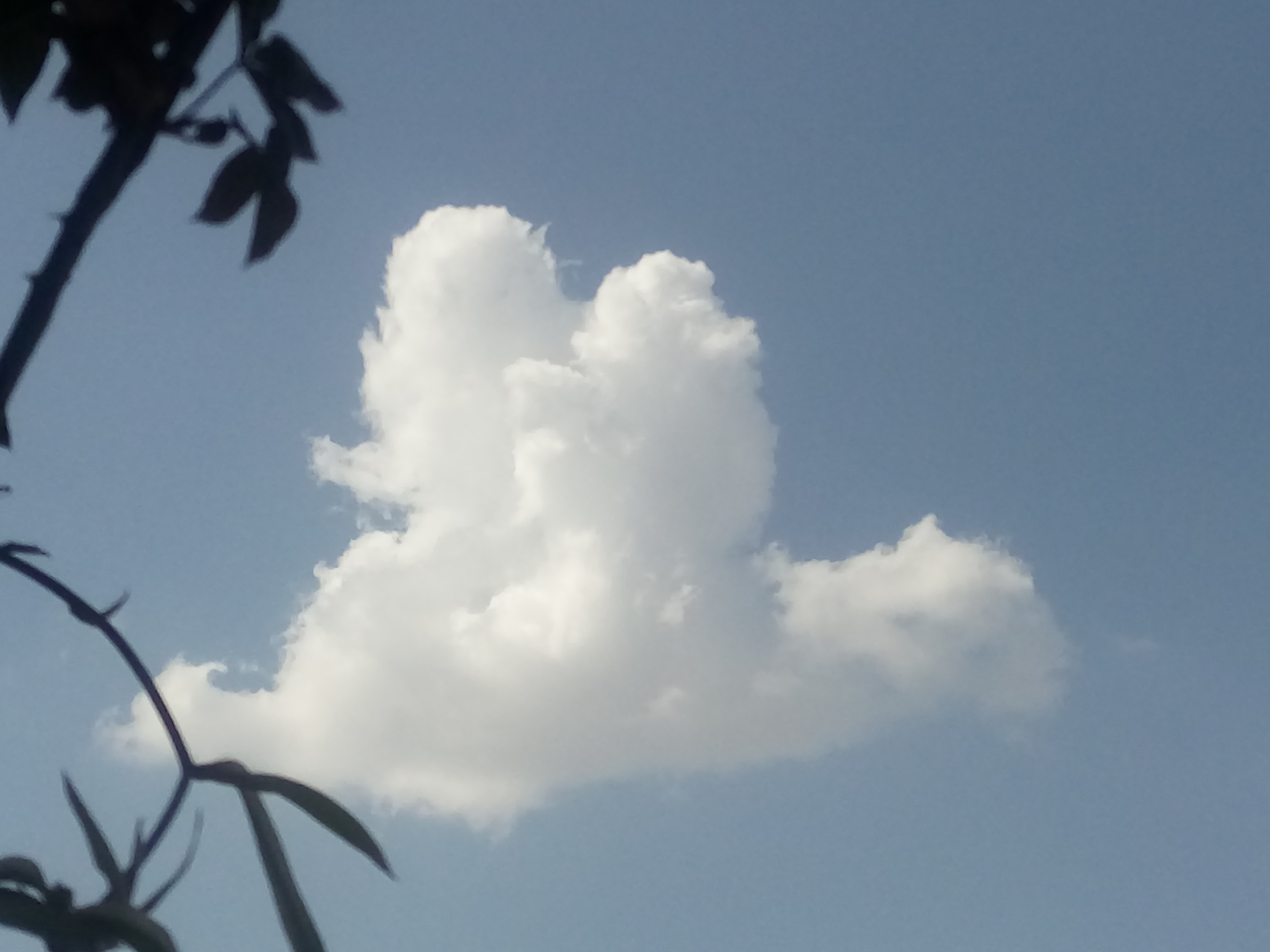حضرت داوود (ع)
King Davidحضرت داوود (ع)
King Davidماشیح
یهودیان بر خلاف دیگر اقوام که دوران طلایی تاریخ خود را در گذشتههای تاریک و بسیار دور میبینند، به آینده چشم دوختهاند و انبیای بنیاسرائیل بارها به «روزهای آخر» که هنوز فرا نرسیده است به عنوان دوران اعتلای نهایی و عظمت ملی یهود، اشاره کردهاند. امید به آیندة نورانی و مشحون از سعادت در دل عامه مردم، روز به روز نه تنها شدت یافت بلکه به رؤیاهای شگفت انگیزی هم دامن زد. ماشیح (MASHIAH)یا «تدهین شده با روغن مقدس» که از جانب خدا مأمور آغاز این دوران تازه و پر از شگفتی است، محور این آینده است. تلمود، منبع سنت شفاهی یهود، صدها بار به ماشیح و مأموریت او اشاره کرده است.
اعتقاد به ظهور ماشیح، بالطبع هنگام بدبختیهای ملی قوم یهود شدت مییافته است. وقتی که ظلم و تعدی یک دولت فاتح که ملت اسرائیل را به زیر سلطۀ خود داشت، غیر قابل تحمل میشد، یهودیان از روی غریزه به پیش گوییهایی که در کتاب مقدس دربارۀ ظهور ماشیح شده است، توجه میکردند تا در روزهای پر از رنج در برابر شدیدترین سختیها تاب بیاورند و نگذارند یأس و حرمان بر آنها چیره شود.
در اینکه ماشیح داود است یا از نسل او اختلاف است: برخی او را با داود پادشاه یکی میدانند و با استناد به آیه «بعد از آن بنیاسرائیل برگشته و خداوند خدای خود و داود پادشاه خویش را خواهند طلبید»، میگویند: این پادشاه، ماشیح است. اگر او جزو زندگان است اسمش داود است و اگر جزو مردگان است (که بعدا زنده خواهد شد)، نامش داود است.
نشانههای پیش از ظهور ماشیح
دردهای زایمان دورۀ ماشیح سخت و شدید خواهد بود.
تاریکی و سیاهی شب، قبل از دمیدن سپیده فزونی مییابد.
آشفتگی و فساد در جهان به حد اعلی خواهد رسید و سختیهای زندگی، غیر قابل تحمل خواهند شد.
جوانان به پیران بیاحترامی کرده و آنها را خجالت خواهند داد و پیران در جلوی جوانان به پا خواهند ایستاد.
کوشش برای محاسبه و یافتن تاریخ پایان ذلت قوم اسرائیل و ظهور ماشیح، از طرف اکثریت دانشمندان یهود، به شدت تقبیح شده است، چرا که در صورت عدم تحقق، یأس و حرمان را به دنبال خواهد داشت.
آنها (رحمتهای الاهی) هر بامداد تازه میشوند و امامت تو بسیار است (مراثی ارمیا، 23:3) یعنی امانت تو بسیار است برای زنده کردن مردگان
یهودیانی که لیاقت و امتیازات لازم را کسب نکرده باشند، از پاداش زندگی بعد از مرگ محروم خواهند ماند؛ وفات یافتگان (رفائیم یا کسانی که در آموختن مطالب تورات سستی و کاهلی کنند)، برنخواهند خواست.
خداوند قدرت از بین بردن نقائص را به دلیل آیة: من مجروح کردم و خودم شفا دادم (تثنیه، 39:32) داراست ولی برای آنکه معاندان نگویند که خداوند در عوض و به جای افرادی که مردهاند، افراد دیگری را زنده کرده است، آنها را با نقائص بدنیشان دوباره زنده میکند.
موعود مورد انتظار یهودیان "ماشیَح" (مسیح، مسح شده) خوانده می شود، ماشیح لقب پادشاهان قدیم بنی اسرائیل بود، ولی چون لفظ مسیح به عیسی اطلاق می شود، دانشمندان برای اشاره به مو عود یهود، از واژه "مسیحا" که با توجه به تلفظ لاتینی از روی واژه عبری "ماشیَح"، ساخته شده است، استفاده می کنند
مسیحیان قائل اند که منجی آنها "مسیح بن مریم"عیسی مسیح است خدای متعال او را زنده کرد و به آسمان برد و در آخر دنیا وی را می فرستد تا توسط وی وعده اش را تحقق بخشد.و عیسی مسیح را از نسل داوود طبق کتاب انجیل به عنوان منجی خود میدانند
و یهودیان هم ماشیح را منجی خود میدانند.
King David
از سوى دیگر اوریا در آن ایام در لشکر داوود کار مى کرد و آن لشکر در کار جنگ با «بنى عمون » بودند، داوود نامه اى به «یوآب» امیر لشکر خود فرستاد، و نوشت که اوریا را نزد من روانه کن، اوریا به نزد داوود آمد، و چند روزى نزد وى ماند، داوود نامه اى دیگر به یوآب نوشته، به وسیله اوریا روانه ساخت و در آن نامه نوشت: اوریا را ماءموریت هاى خطرناک بدهید و او را تنها بگذارید، تا کشته شود. یوآب نیز همین کار را کرد. و اوریا کشته شد و خبر کشته شدنش به داوود رسید.
پس همین که همسر اوریا از کشته شدن شوهرش خبردار شد، مدتى در عزاى او ماتم گرفت ، و چون مدت عزادارى و نوحه سرایى تمام شد، داوود نزد او فرستاده و او را ضمیمه اهل بیت خود کرد. و خلاصه همسر داوود شد، و براى او فرزندى آورد، و اما عملى که داوود کرد در نظر رب عمل قبیحى بود.
لذا رب ، «ناثان » پیغمبر را نزد داوود فرستاد. او هم آمد و به او گفت در یک شهر دو نفر مرد زندگى مى کردند یکى فقیر و آن دیگرى توانگر، مرد توانگر گاو و گوسفند بسیار زیاد داشت و مرد فقیر به جز یک میش کوچک نداشت، که آن را به زحمت بزرگ کرده بود در این بین میهمانى براى مرد توانگر رسید او از اینکه از گوسفند و گاو خود یکى را ذبح نموده از میهمان پذیرایى کند دریغ ورزید، و یک میش مرد فقیر را ذبح کرده براى میهمان خود طعامى تهیه کرد.
داوود از شنیدن این رفتار سخت در خشم شد، و به ناثان گفت: رب که زنده است، چه باک از اینکه آن مرد طمعکار کشته شود، باید این کار را بکنید، و به جاى یک میش چهار میش از گوسفندان او براى مرد فقیر بگیرید، براى اینکه بر آن مرد فقیر رحم نکرده و چنین معامله اى با او کرده.
ناثان به داوود گفت: اتفاقا آن مرد خود شما هستید، و خدا تو را عتاب مى کند و مى فرماید: بلاء و شرى بر خانه ات مسلط مى کنم و در پیش رویت همسرانت را مى گیرم، و آنان را به خویشاوندانت مى دهم و این را به کیفر آن رفتارى مى کنم که تو با اوریا و همسرش کردى.
داوود به ناثان گفت : من از پیشگاه رب عذر این خطا را مى خواهم . ناثان گفت : خدا هم این خطاى تو را از تو برداشت و نادیده گرفت و تو به کیفر آن نمى میرى، و لیکن از آنجا که تو با این رفتارت دشمنانى براى رب درست کردى که همه زبان به شماتت رب مى گشایند، فرزندى که همسر اوریا برایت به دنیا آورده خواهد مرد. پس خدا آن فرزند را مریض کرد و پس از هفت روز قبض روحش فرمود، و بعد از آن همسر اوریا سلیمان را براى داوود به دنیا آورد".
اما در کتاب عیون است که - در باب مجلس رضا (علیه السلام ) نزد ماءمون و مباحثه اش با ارباب ملل و مقالات - امام رضا (علیه السلام ) به ابن جهم فرمود: بگو ببینم پدران شما درباره داوود چه گفته اند؟ ابن جهم عرضه داشت : مى گویند او در محرابش مشغول نماز بود که ابلیس به صورت مرغى در برابرش ممثل شد، مرغى که زیباتر از آن تصور نداشت . پس داوود نماز خود را شکست و برخاست تا آن مرغ را بگیرد. مرغ پرید و داوود آن را دنبال کرد، مرغ بالاى بام رفت ، داوود هم به دنبالش به بام رفت ، مرغ به داخل خانه اوریا فرزند حیان شد، داوود به دنبالش رفت ، و ناگهان زنى زیبا دید که مشغول آب تنى است .
داوود عاشق زن شد، و اتفاقا همسر او یعنى اوریا را قبلا به ماءموریت جنگى روانه کرده بود، پس به امیر لشکر خود نوشت که اوریا را پیشاپیش تابوت قرار بده ، و او هم چنین کرد، اما به جاى اینکه کشته شود، بر مشرکین غلبه کرد. و داوود از شنیدن قصه ناراحت شد، دوباره به امیر لشکرش نوشت او را همچنان جلو تابوت قرار بده ! امیر چنان کرد و اوریا کشته شد، و داوود با همسر وى ازدواج کرد.
راوى مى گوید: حضرت رضا (علیه السلام ) دست به پیشانى خود زد و فرمود «انا لله و انا الیه راجعون » آیا به یکى از انبیاى خدا نسبت مى دهید که نماز را سبک شمرده و آن را شکست ، و به دنبال مرغ به خانه مردم درآمده ، و به زن مردم نگاه کرده و عاشق شده ، و شوهر او را متعمدا کشته است ؟
ابن جهم پرسید: یا بن رسول اللّه پس گناه داوود در داستان دو متخاصم چه بود؟ فرمود واى بر تو خطاى داوود از این قرار بود که او در دل خود گمان کرد که خدا هیچ خلقى داناتر از او نیافریده ، خداى تعالى (براى تربیت او، و دور نگه داشتن او از عجب ) دو فرشته نزد وى فرستاد تا از دیوار محرابش بالا روند، یکى گفت ما دو خصم هستیم، که یکى به دیگرى ستم کرده، تو بین ما به حق داورى کن و از راه حق منحرف مشو، و ما را به راه عدل رهنمون شو. این آقا برادر من نود و نه میش دارد و من یک میش دارم، به من مى گوید این یک میش خودت را در اختیار من بگذار و این سخن را طورى مى گوید که مرا زبون مى کند، داوود بدون اینکه از طرف مقابل بپرسد: تو چه مى گویى ؟ و یا از مدعى مطالبه شاهد کند در قضاوت عجله کرد و علیه آن طرف و به نفع صاحب یک میش حکم کرد، و گفت : او که از تو مى خواهد یک میشت را هم در اختیارش بگذارى به تو ظلم کرده . خطاى داوود در همین بوده که از رسم داورى تجاوز کرده ، نه آنکه شما مى گویید، مگر نشنیدهاى که خداى عزّوجلّ مى فرماید: «یا داود انا جعلناک خلیفة فى الاءرض فاحکم بین الناس بالحق ....»
ابن جهم عرضه داشت: یا بن رسول اللّه پس داستان داوود با اوریا چه بوده؟ حضرت رضا (علیه السلام ) فرمود: در عصر داوود حکم چنین بود که اگر زنى شوهرش مى مرد و یا کشته مى شد، دیگر حق نداشت شوهرى دیگر اختیار کند، و اولین کسى که خدا این حکم را برایش برداشت و به او اجازه داد تا با زن شوهر مرده ازدواج کند، داوود (علیه السلام ) بود که با همسر اوریا بعد از کشته شدن او و گذشتن عده ازدواج کرد، و این بر مردم آن روز گران آمد.











